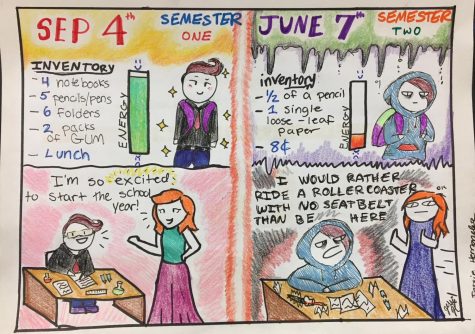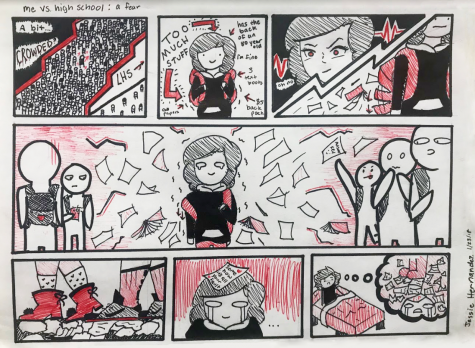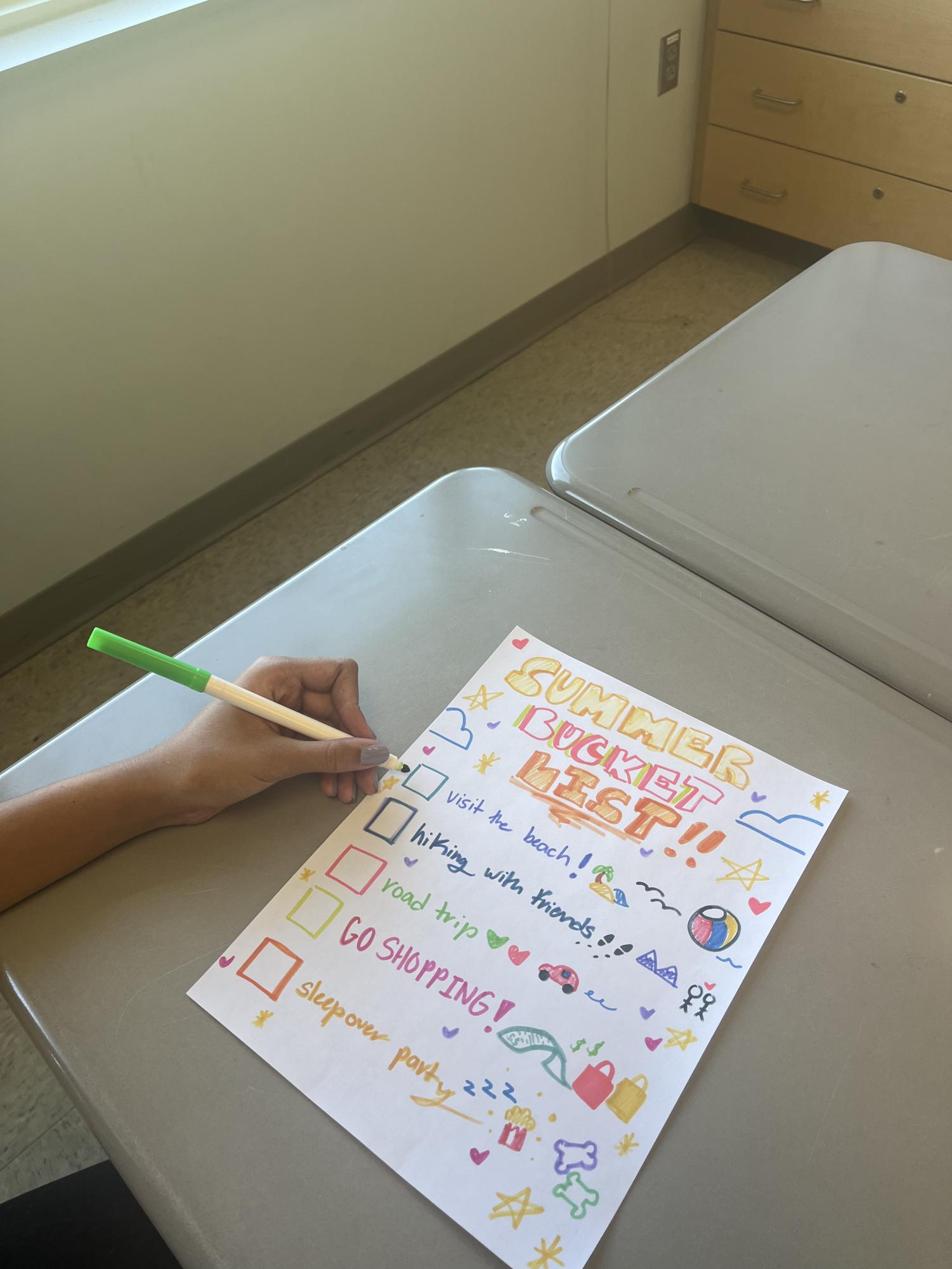The never-ending week: The three longest months of school cause academic and mental distress

Between the months of January to April, students feel overwhelmed by the number of school days without a break.
April 27, 2023
Late January to early April is the longest time period of continuous full weeks of school for both students and teachers. Specifically, 10 out of the 36 weeks of school, or 27% of the school year fall within this draining time frame.
Within these 10 weeks students and teachers are rarely provided a day off. This lack of a break during full five-day weeks and seven hour days has both staff and students on a mental and academic downfall.
With this never-ending cycle of school work and an abundance of hours spent socializing and learning, the effects the academic calendar has on mental health, motivation and attendance records is apparent.
Without built-in breaks, students take it upon themselves to skip school and take days off as mental health days from school.
Even with these days off, the issue is not resolved. This is because on those days students are away from school, they are missing work and important class lessons their peers are learning. This leads to the students falling behind if they don’t stay on top of their work, but despite the unwillingness or low willpower to complete work that mental illnesses like depression can provide only leaves students to fall further and further behind.
“I contemplate skipping school at least once or twice a week, but rarely do because I fear getting behind in my classes, Linganore sophomore Rebecca Davis said.” “It is very hard to catch up if you miss a day.”
Another mental illness, anxiety, is just as common as depression in students. Often, what happens is students feel as if their teachers and parents are disappointed in them and this causes students to worry about other aspects of the situation and how the adults in their lives will react. Disappointment includes dropping grades, isolation or loss of social life and missing out on. This specific anxiety can cause students to spiral and worry for their future.
Although students may want to do their best, depression is right there to stop them from feeling productive enough to do so. The two work hand-in-hand to destroy a student’s academics and way of thinking all because they feel the need for relief from seeming never-ending weeks within a school environment.
Lack of motivation is considered one of the products of a mental illness, and this has the biggest impact on school work and inner thoughts. These continuous school days effectively burn students out mentally. When there is always new work to be done and turned in, the feeling of accomplishment one feels in completing their work ceases to exist.
Another factor that plugs into motivation comes from academic validation. When teachers fail to grade students assignments in a timely manner. When students do not see the good grades that come as a result of their hard work, it can leave them unmotivated, confused, and unwilling to put in more effort.
Teachers can also experience academic downfall, meaning the lack of motivation is universal. When the grading piles up from assignment after assignment throughout the weeks, it leaves the teachers just as unwilling to grade as the students are to work. It is a cause-and-effect cycle in which there is no one or nothing to blame, but it contributes to brain drain over the worst of unending school days in the spring months.
“Having no breaks is like having no motivation. It just makes you tired,” sophomore Sadie Gladhill said.
In correlation with the mental health days attendance records seem to be at an all-time low this time of year. Not only will students take whole days off, but skipping class to roam the halls seems to be a common idea for students needing to get quick relief from a suffocating classroom.
Constant days of lectures and overwhelming material leaves many from willing to do anything for an escape. But even mental health days are not enough, as students who exhaust their permitted excused absences do not otherwise have a reason to be skipping school. They are left to suffer under the weight of repeating the same day for weeks at a time.
The academic calendar does have a day off after each term for a teacher work day but, teacher work days are definitely not a day a teacher can consider a break. Teachers work harder than most students, having to worry about many other people rather than themselves, on top of having a life which is affected by all the same factors as a student. If anything, they deserve a break, and they definitely are not getting one during such a perpetual cycle of work.
“There are just a lot of things [everyday life factors]. We have homes, children, pets…and everyday things, so it’s just a little more difficult to get those things completed and all of them done in the two days [one the weekend] that we get off from long school days,” AP Computer Science teacher Julie Morris said.
During these specific months, there are plenty of other stressors such as the transition between winter and spring sports, tryouts and transitioning to a new course schedule at the end of the first semester.
Homework that teachers can not let the student escape even at home which almost makes sense why students would avoid the school day completely because if they are not there it’s almost like the school work that is assigned doesn’t even exist for a little bit.
Home life is a complicated situation for some students, they may consider school an escape but it is not easy to consider an environment of constant brain usage and attention an oasis one can escape to.
Students and teachers are in academic and mental downfall as the months from late January to early April leave them with worsening mental health, a lack of motivation and poor attendance. This time of the school year is not only the longest but the roughest, and it traps everyone in a seemingly never-ending cycle, spring break being the only long break during these months.













